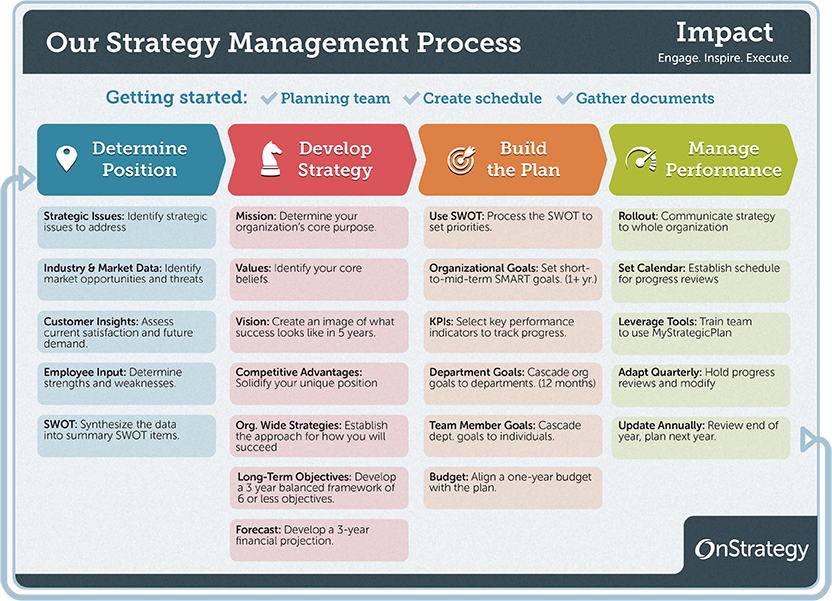
Running a successful business requires more than just a great product or service. It requires careful planning and the ability to anticipate and adapt to market changes. This is where strategic business planning comes into play. Strategic business planning is the process of setting long-term goals, determining the best ways to achieve those goals, and implementing strategies to stay on track.
Why is Strategic Business Planning Important?
Strategic business planning is important for several key reasons. Firstly, it helps businesses identify their vision and mission. By clearly defining what the business wants to achieve and how it wants to make a difference, owners and employees are motivated and more likely to work towards a common goal.
Strategic business planning also provides businesses with a roadmap for success. It helps identify opportunities and potential risks, and enables businesses to allocate resources effectively. With a solid plan in place, businesses can make informed decisions, take advantage of market trends, and respond quickly to changes.
The Steps of Strategic Business Planning
Strategic business planning is a multi-step process that involves careful analysis and decision-making. Let’s take a closer look at each of these steps:
1. Environmental Analysis
The first step in strategic business planning is conducting an environmental analysis. This involves assessing the internal and external factors that can impact the business. Internally, this includes evaluating the business’s strengths and weaknesses, such as its resources, capabilities, and competitive advantages. Externally, businesses need to assess the market conditions, competitor analysis, and any political, economic, or social factors that may affect their operations.
2. Setting Goals and Objectives
Once the environmental analysis is complete, the next step is setting goals and objectives. These goals should be specific, measurable, achievable, relevant, and time-bound (SMART). They should align with the business’s overall vision and mission and reflect the opportunities and threats identified during the environmental analysis.
3. Developing Strategies
After setting goals and objectives, businesses need to develop strategies to achieve them. Strategies outline the broad approaches businesses will take to reach their goals. This includes determining target markets, positioning the business within the market, and deciding on key competitive advantages. A well-developed strategy should consider customer needs and preferences, industry trends, and potential risks.
4. Implementation
Implementing the strategies is the next crucial step. This involves putting the plans into action and allocating resources to execute the strategies effectively. The implementation phase requires strong leadership, effective communication, and the ability to manage and monitor progress. Regular reviews and adjustments may be necessary as businesses navigate through implementation challenges.
5. Monitoring and Evaluation
The final step in strategic business planning is monitoring and evaluation. Businesses need to continuously review their progress against the set goals and objectives. This allows them to identify any gaps and make necessary adjustments. Monitoring and evaluation also provide insights into the effectiveness of the strategies implemented and help businesses make informed decisions for future planning.
Beyond Strategic Business Planning: The Role of Flexibility
While strategic business planning plays a vital role in guiding businesses towards success, it is crucial to understand that plans may need to change. In today’s fast-paced and unpredictable business environment, flexibility is key. Businesses need to be agile and adapt to new opportunities and challenges as they arise.
Strategic business planning should not be viewed as a static document, but rather as a living process. Businesses should regularly revisit and revise their plans to ensure they remain relevant and aligned with the changing business landscape.
In Conclusion
Strategic business planning is a critical process for any business looking to thrive in a competitive market. It provides guidance and direction, enables effective decision-making, and helps businesses stay ahead of the curve. By following the steps outlined in this article and embracing flexibility, businesses can create a solid foundation for long-term success.

